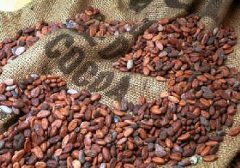How much do you know about coffee's innocence? Not only contains caffeine.
In the past, people didn't pay much attention to the complex chemicals in coffee when they enjoyed it. People are mainly interested in the refreshing effect of coffee, rather than the health effects of drinking coffee regularly. But nowadays, food chemistry is becoming more and more important to our lives, because a series of serious diseases are related to our diet, and it is estimated that 3 percent of deaths in the United States are related to this. These diseases include heart disease, high blood pressure, stroke, cancer and diabetes. Everyone is likely to suffer from diet-related chronic diseases to varying degrees, and this risk increases with age. Possible factors that increase the risk of these diseases include inadequate intake of vegetables and fruits, excessive consumption of foods containing saturated fat (fried foods, full-fat dairy products, high-fat meat) and lack of exercise. Generally, these lifestyles are developed from childhood and continue into adulthood.
Coffee contains more nutrients than many important foods. Coffee contains protein (11%) and amino acids (less than 1%), lipids (10% Mel 20%), such as triglycerides and free fatty acids, as well as sugars (35% Mel 55%) and polysaccharides. Coffee contains a lot of minerals (3% Mel 5%), such as potassium (K), iron (Fe), zinc (Zn), and about 0.5% niacin (to prevent pellagra, also known as vitamin pp or vitamin B3). In addition, the content of chlorogenic acid, an antioxidant in coffee, is 7%, which is much higher than that of caffeine. After roasting coffee at a high temperature of about 200℃, proteins, amino acids, sugars and lipids are decomposed and about 1000 volatile compounds are derived. Part of chlorogenic acid is converted to lactone. The chemical reaction to most of the volatile substances in coffee beans is not clear. Caffeine is an important ingredient in coffee, it will not be destroyed, while other substances are easily destroyed in the process. Coffee drinks contain hundreds of volatile compounds, such as caffeine, chlorogenic acid, nicotinic acid, minerals, caffeinol and so on, dissolve in water to form aroma.
The basic nutrients and energy sources that need to be consumed in the daily diet depend on age, sex, height, weight, metabolism and physical activity. For vitamins and minerals that we know little about, their safety and daily intake should be assessed. Iron is a nutrient that makes up hemoglobin, myoglobin and other enzymes in the body. Iron deficiency may cause anemia. It is the most common nutritional deficiency in the world. It is also a common disease caused by iron deficiency in children, adolescent girls and pregnant women. Anyone who loses blood can cause iron deficiency, and all people with iron deficiency need iron supplements.
The human body contains 2-3 grams of zinc, which is mainly distributed in bones, teeth, hair, skin, liver and muscles. There are more than 100 zinc-containing enzymes that play an important role in many cellular functions. The daily intake of zinc from the diet of healthy adults is 6-15 grams, of which about 20% is absorbed by the body. Meat, liver, eggs and seafood (especially oysters) are good food sources. The daily intake of zinc for adults is 0.2 mg / kg. The clinical manifestations and symptoms of zinc deficiency include anorexia, growth retardation, delayed sexual maturity, immune disorder, dermatitis, night blindness, decreased taste (taste dullness) and difficulty in wound healing. Zinc deficiency in some patients with liver cirrhosis is due to the loss of the ability to store zinc. It is difficult to diagnose mild zinc deficiency because its clinical manifestations and symptoms are not obvious. Maternal zinc deficiency can cause fetal anencephaly. Liver disease can cause secondary zinc deficiency, mainly due to malabsorption and long-term parenteral nutrition. Its main features are night blindness and sleeping sickness.

Important Notice :
前街咖啡 FrontStreet Coffee has moved to new addredd:
FrontStreet Coffee Address: 315,Donghua East Road,GuangZhou
Tel:020 38364473
- Prev

Coffee is not guilty! Coffee is a kind of fruit!
Although there are a large number of cartoons and almost universally accepted legends that Eve ate a fruit from the Garden of Eden, the Bible does not say that Eve ate an apple. The record in Genesis is that she ate fruit from the tree of good and evil. Why do people think Eve eats apples? One reason is that in Latin, the word evil is malum, and the word apple is also malum. A.D.
- Next

The main ingredients of coffee
Caffeine: it has a particularly strong bitter taste and stimulates the central nervous system, heart and respiratory system. Appropriate amount of caffeine can also reduce muscle fatigue and promote digestive juice secretion. Because it promotes kidney function, it is diuretic and helps the body to expel excess sodium ions from the body. But eating too much can lead to caffeine poisoning. Tannic acid: boiled tannic acid will be decomposed into pyrouric acid
Related
- Beginners will see the "Coffee pull flower" guide!
- What is the difference between ice blog purified milk and ordinary milk coffee?
- Why is the Philippines the largest producer of crops in Liberia?
- For coffee extraction, should the fine powder be retained?
- How does extracted espresso fill pressed powder? How much strength does it take to press the powder?
- How to make jasmine cold extract coffee? Is the jasmine + latte good?
- Will this little toy really make the coffee taste better? How does Lily Drip affect coffee extraction?
- Will the action of slapping the filter cup also affect coffee extraction?
- What's the difference between powder-to-water ratio and powder-to-liquid ratio?
- What is the Ethiopian local species? What does it have to do with Heirloom native species?

